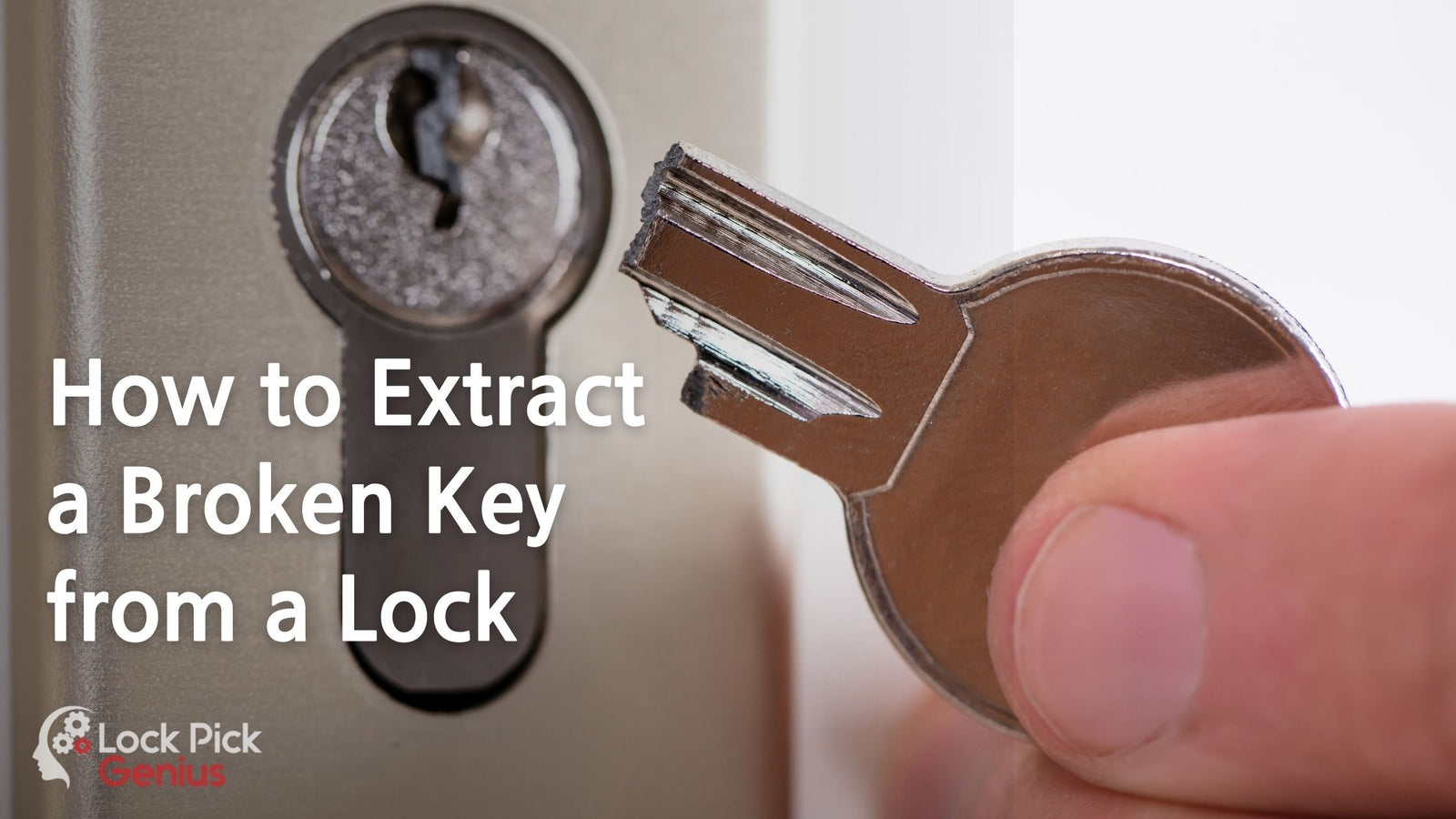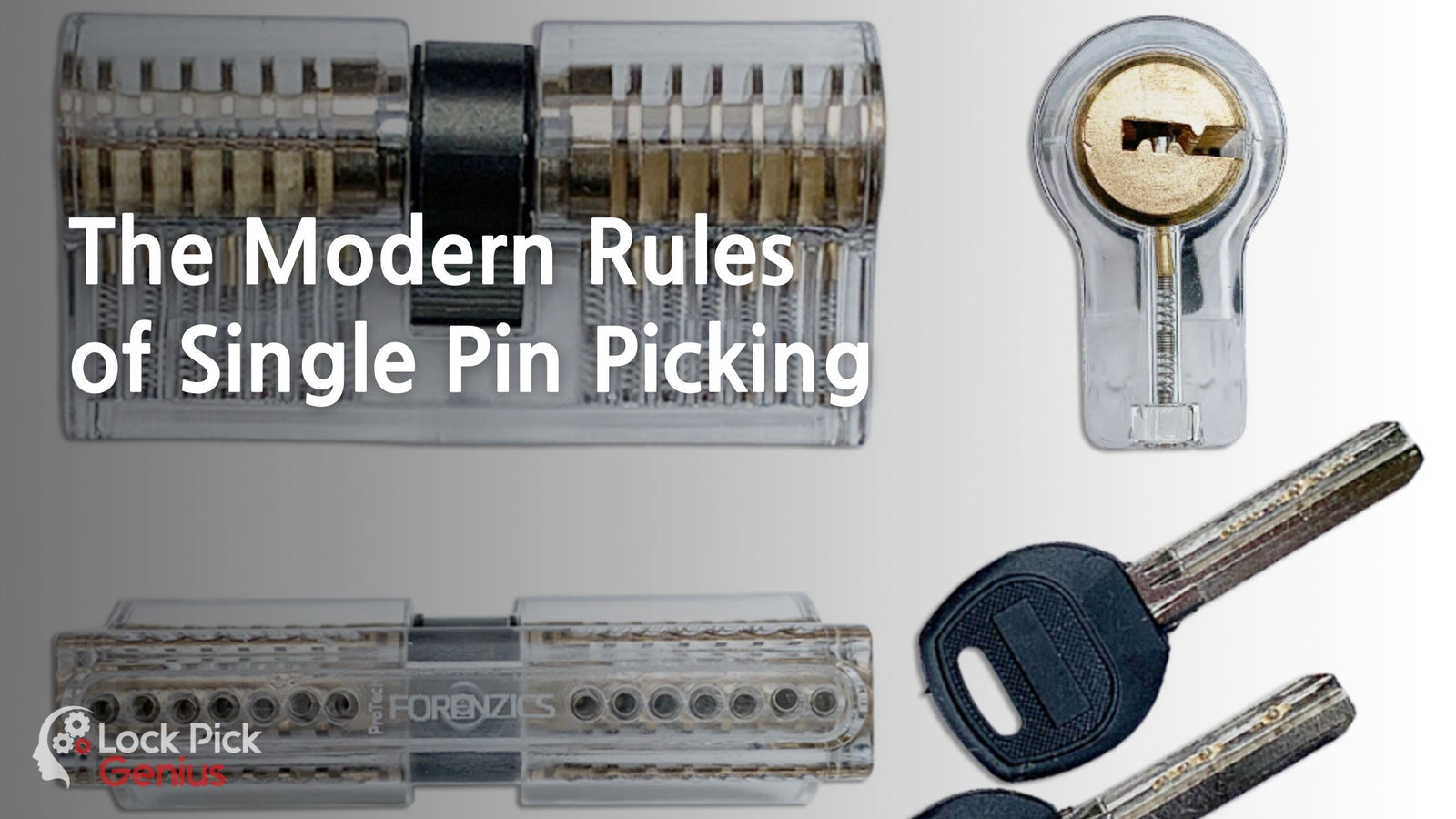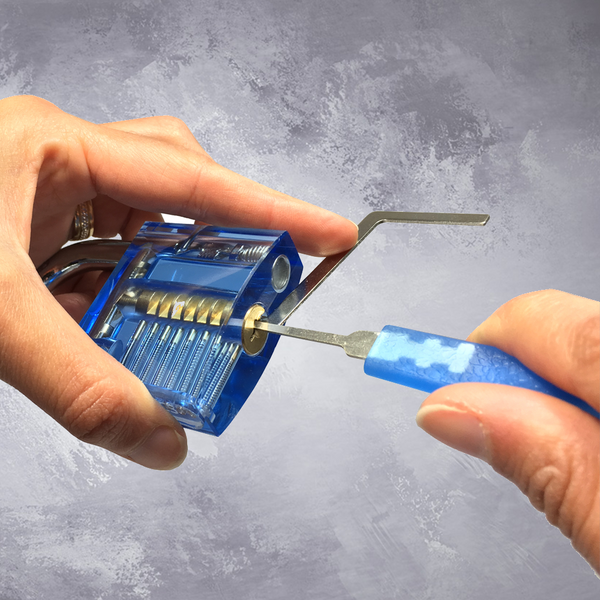Your Cart is Empty

Who knew that a broken key in the lock could be such fun? I bet you had no idea. But, if you have never tried this trick, at least once, you must have a rough idea of the process. In fact, Lock Pick Genius have some of the most fabulous broken key extractor tools which you can use to extract a broken key from a lock. However, the lack of proper tools can make the extraction exercise a daunting task. Read on to find the perfect tools to use and the straightforward techniques to employ.
There are three reasons why keys break while they are being turned inside a lock.
The process of extracting a broken key usually involves three standard procedures.
To extract an embedded broken key, you only need two things, persistence and a lot of patience. However, you can lessen the job by using simple tools. These tools include a flat head screwdriver, also known as "jimmy's". Notably, a slotted or cross-head screwdriver is applicable. Other applicable tools include Pin Vise Grips, a sliding hammer tool for locks and a Key extractor. You can get all these from Lock Pick Genius.
Once you have gathered your tools, it's time to extract the broken key in the lock. Start by trying different approaches until you find an extractor tool that fits well into the extractor hole of the lock. Additionally, make sure that any extractors used are made of high-quality metal to prevent breakage.
This process requires lots of persistence. Once you have found a suitable extractor tool, insert it carefully with gentle pressure until it completely penetrates the extractor hole in the lock.
While using the extractor tool, below are the guidelines to follow for a successful key extraction exercise
To avoid another key breakage inside a lock, below are the considerations to make.
Ensure your keys are made using durable metal: The most common types of metal used in making keys are brass, bronze and silver alloys. However, every kind of metal contains its unique characteristics. Bronze is more rigid than brass but less complex than silver. On the other hand, brass has good strength or resistance against wear and tear. For this reason, the ideal material for making keys is silver alloy with appropriate hardness.
Make appropriate choices on the type of material for your preferred key: When choosing the proper kind of material for your keys, use these tips to ensure your keys don't break inside locks.
Avoid over-fitting extractor tool: A common mistake most individuals make when removing keys with extractors is over-fitting the extractor tool into the extractor hole of the lock. Furthermore, forcing an extractor tool into a lock may result in breakage, thus damaging your keys irreparably.
Always select the best extractor tool that works well with your lock: Extractor tools come in different sizes, shapes, and lengths to suit specific lock types and applications. Accordingly, ensure you have selected an extractor tool that best suits your lock application.
Avoid using tools like screwdrivers on locks unless absolutely necessary: Such devices may require a lot of pressure which may not be necessary on specific locks. Moreover, applying excessive pressure may damage the extractor or the cylinder causing permanent damage.
Always test extractor tools first before use: You can test them by gently trying them out on a doorknob to ensure they fit correctly without any difficulties.
When issues cannot be handled by yourself, consider contacting a professional locksmith to extract your keys for you. Most skilled locksmiths have the right tools and equipment to remove broken keys from almost any type of lock without causing other permanent damages or leaving a mark behind in the lock.
Comments will be approved before showing up.


Be the first to know about lockpicking tips and upcoming sales and promos. Get a 10% discount coupon when you subscribe!

Sign up to get special offers, Tips, News and Great deals